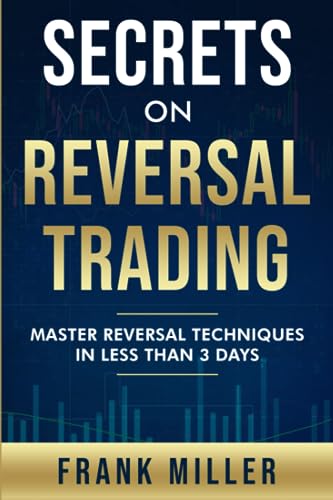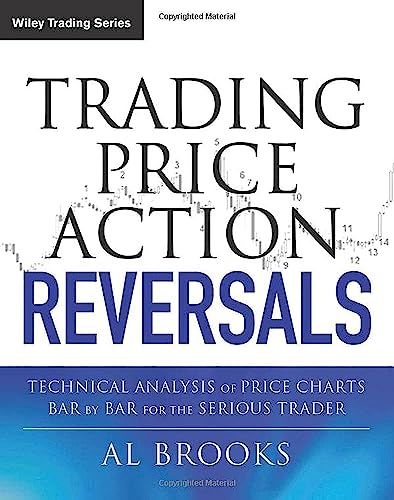- Miller, Frank (Author)
- English (Publication Language)
- 92 Pages - 11/01/2020 (Publication Date) - Independently published (Publisher)
Introduction
Reversal trading is a powerful strategy that can unlock potential profits for traders. By identifying key market reversals, traders can take advantage of price movements and make profitable trades. In this article, we will explore the concept of reversal trading and how it can be used to maximize trading gains.
Understanding Reversal Trading
Reversal trading involves identifying points in the market where the price trend is likely to reverse. This strategy is based on the belief that markets often exhibit temporary price movements before returning to their original trend. By recognizing these reversals, traders can enter or exit positions at optimal times, capturing potential profits.
The Importance of Identifying Reversal Patterns
To successfully implement reversal trading, it is crucial to identify reversal patterns. These patterns can be found through technical analysis tools such as chart patterns, candlestick formations, and indicators. Traders need to study these patterns and understand their significance in order to make informed trading decisions.
Common Reversal Patterns
There are several common reversal patterns that traders often look for. These include:
1. Head and Shoulders: This pattern consists of three peaks, with the middle peak being the highest. It indicates a potential trend reversal from bullish to bearish.
2. Double Top/Bottom: This pattern occurs when the price reaches a high or low point twice before reversing. It suggests a potential trend reversal.
3. Engulfing Candlestick: This pattern involves a large bullish or bearish candlestick that engulfs the previous candlestick. It indicates a potential reversal in the market.
Implementing Reversal Trading Strategies
Once traders have identified a potential reversal pattern, they can implement various strategies to capitalize on the opportunity. Some common strategies include:
1. Breakout Trading: Traders can enter a position when the price breaks out of a reversal pattern, confirming the reversal. This strategy aims to capture the initial momentum of the new trend.
2. Trendline Trading: By drawing trendlines connecting highs or lows, traders can identify potential reversal points. They can enter or exit positions when the price breaks these trendlines, indicating a reversal.
3. Fibonacci Retracement: Traders can use Fibonacci retracement levels to identify potential reversal zones. These levels are based on the Fibonacci sequence and can act as support or resistance levels.
Conclusion
Reversal trading is a valuable strategy for traders looking to unlock potential profits. By identifying reversal patterns and implementing appropriate strategies, traders can take advantage of market reversals and make profitable trades. It is important to conduct thorough analysis and stay updated with market trends to effectively implement reversal trading. Remember, practice and experience are key to mastering this strategy and maximizing trading gains.
- Miller, Frank (Author)
- English (Publication Language)
- 92 Pages - 11/01/2020 (Publication Date) - Independently published (Publisher)
- Hardcover Book
- Brooks, Al (Author)
- English (Publication Language)
- 576 Pages - 01/24/2012 (Publication Date) - Wiley (Publisher)
- Pecaut, Rayner (Author)
- English (Publication Language)
- 71 Pages - 08/04/2022 (Publication Date) - Independently published (Publisher)
- Baker, Elliot (Author)
- English (Publication Language)
- 74 Pages - 06/15/2023 (Publication Date) - Independently published (Publisher)




